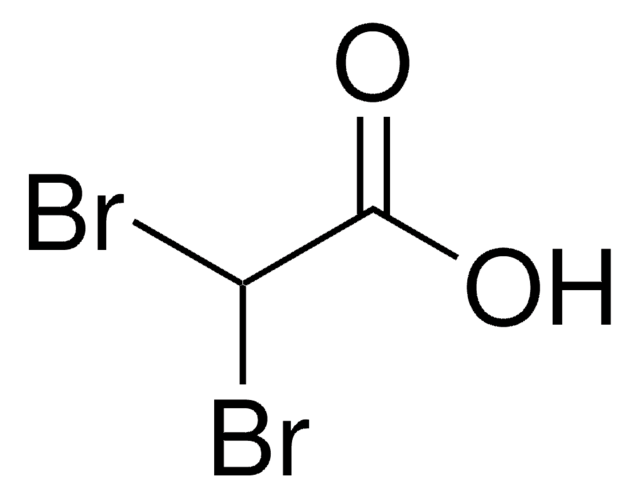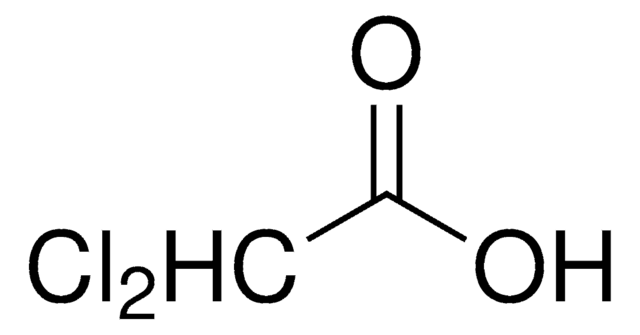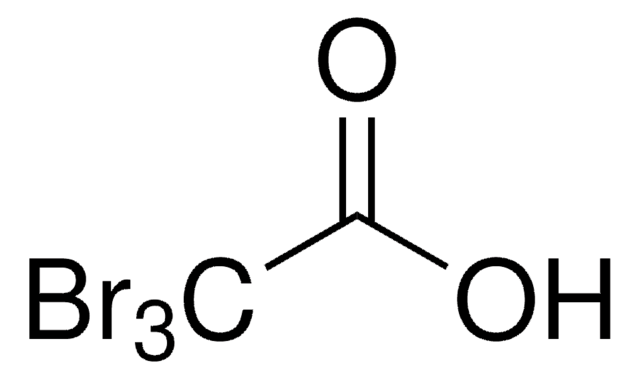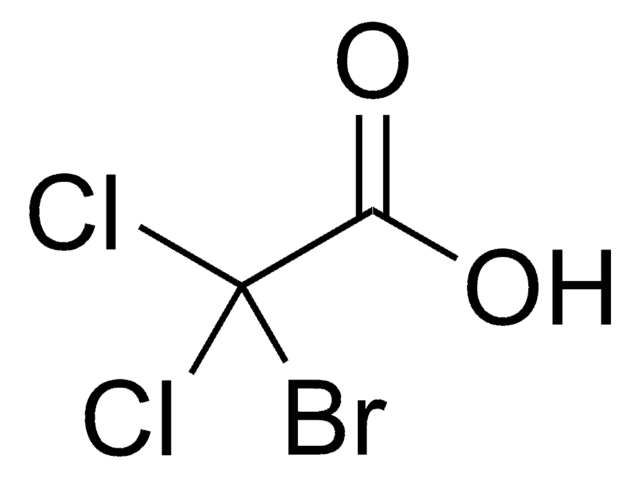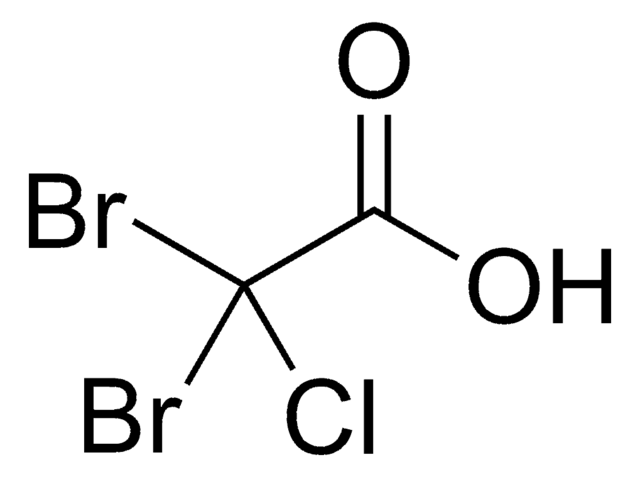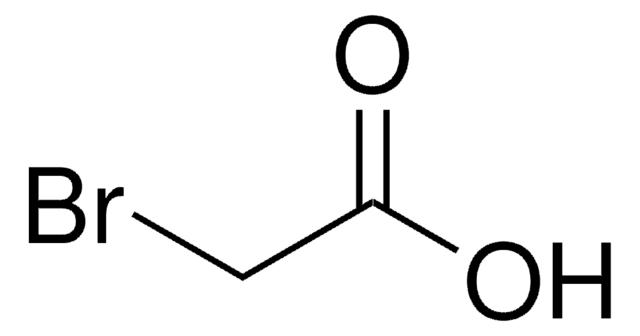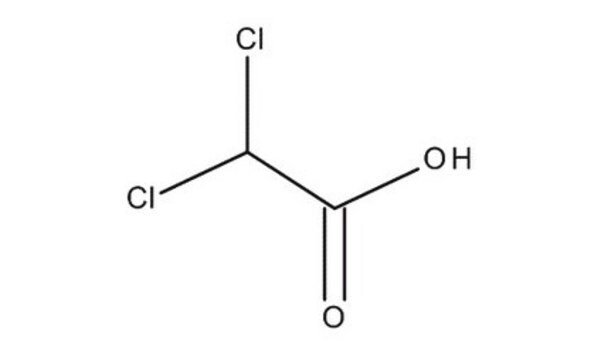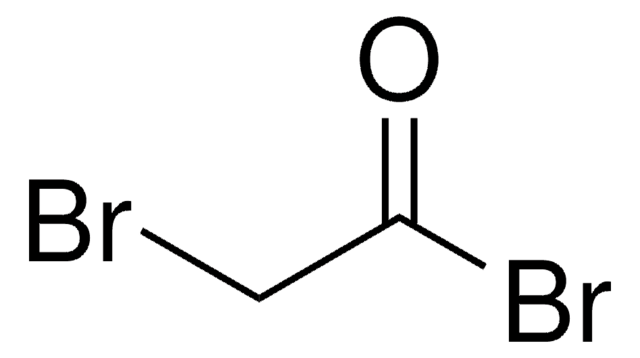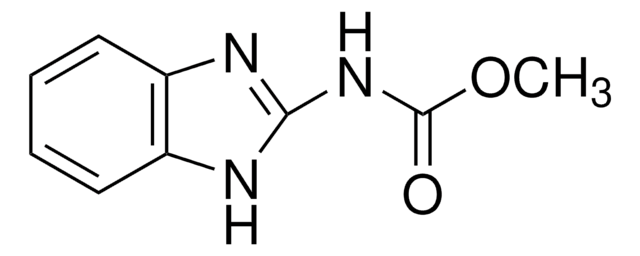242357
Dibromoacetic acid
97%
Sinónimos:
2,2-Dibromoacetic acid, DBAA
About This Item
Productos recomendados
Nivel de calidad
Análisis
97%
formulario
solid
bp
128-130 °C/16 mmHg (lit.)
mp
32-38 °C (lit.)
densidad
2.382 g/mL at 25 °C (lit.)
grupo funcional
bromo
carboxylic acid
cadena SMILES
OC(=O)C(Br)Br
InChI
1S/C2H2Br2O2/c3-1(4)2(5)6/h1H,(H,5,6)
Clave InChI
SIEILFNCEFEENQ-UHFFFAOYSA-N
¿Está buscando productos similares? Visita Guía de comparación de productos
Categorías relacionadas
Aplicación
- Forthe stereoselective synthesis of (E)-α, β-unsaturated carboxylic acidsby samarium diiodide (SmI2) catalyzed reaction with aldehydes.
- Tosynthesize sodium bis(2-pyridylthio)acetate ligand by reacting with 2-mercaptopyridinein the presence of NaOH.
Otras notas
Palabra de señalización
Danger
Frases de peligro
Consejos de prudencia
Clasificaciones de peligro
Acute Tox. 4 Dermal - Acute Tox. 4 Inhalation - Acute Tox. 4 Oral - Aquatic Chronic 3 - Eye Dam. 1 - Skin Corr. 1B
Código de clase de almacenamiento
8A - Combustible corrosive hazardous materials
Clase de riesgo para el agua (WGK)
WGK 3
Punto de inflamabilidad (°F)
235.4 °F - closed cup
Punto de inflamabilidad (°C)
113 °C - closed cup
Equipo de protección personal
Eyeshields, Faceshields, Gloves, type P3 (EN 143) respirator cartridges
Elija entre una de las versiones más recientes:
¿Ya tiene este producto?
Encuentre la documentación para los productos que ha comprado recientemente en la Biblioteca de documentos.
Los clientes también vieron
Nuestro equipo de científicos tiene experiencia en todas las áreas de investigación: Ciencias de la vida, Ciencia de los materiales, Síntesis química, Cromatografía, Analítica y muchas otras.
Póngase en contacto con el Servicio técnico